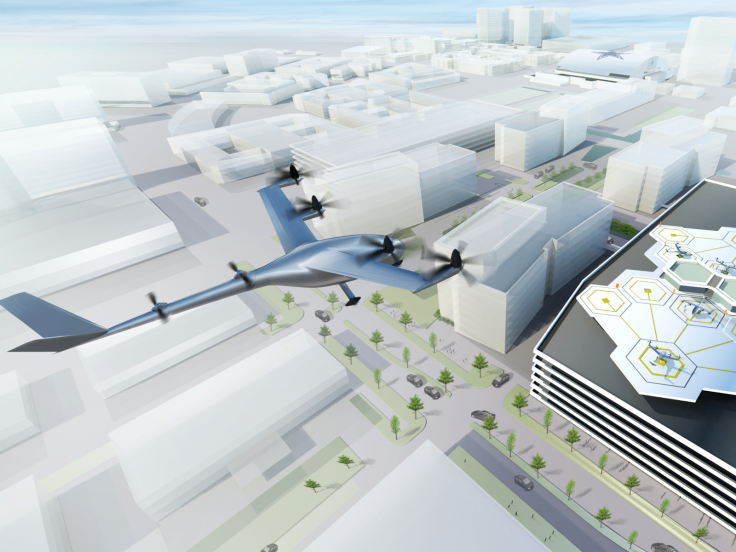Uber wants to test flying taxis in Dubai and Texas by 2020
Uber aims to have 'full-scale operations' by 2023.

Uber has unveiled plans to demonstrate a network of on-demand flying cars in Dallas-Fort Worth, Texas, and Dubai by 2020. At its three-day Elevate Summit in Dallas on Tuesday (25 April), the embattled ride-hailing firm announced its ambitious, futuristic plans saying it has formed partnerships with aviation companies and cities to develop the vehicles as well as the necessary infrastructure.
The firm's envisioned flying taxis will be small, electric aircraft that can take off and land vertically, also known as VTOL vehicles, capable of flying 100 miles in 40 minutes. They will also have zero emissions and will be quiet enough to operate in cities.
Uber hopes to debut its network of flying cars at the 2020 World Expo in Dubai and have "full-scale operations by 2023".
Uber's chief product officer Jeff Holden says Uber aims to reach the "pinnacle of urban mobility," beyond regular ground-based vehicles and self-driving cars.
"Urban aviation is a natural next step for Uber in this pursuit, which is why we are working to make 'push a button, get a flight' a reality," Holden said. "Imagine if you get up in the morning and go on a six-minute flight versus an hour in a car and wasting time."
The firm estimates that the two-hour drive between San Francisco's Marina neighbourhood to downtown San Jose would take just 15 minutes in a VTOL aircraft. Holden demonstrated a possible in-app option for customers to select "UberAir" much like they choose between UberPool and UberXL.
Holden said they would target pricing at "roughly the cost of UberX".
The company expects the cost of taking flying taxis to fall below car ownership in the long run.
For now, Uber is not looking to manufacture the vehicles but partner with other "experienced aircraft manufacturers" to work on them.
To make the Elevate Network a reality, Uber has teamed up with multiple companies that are already working on electric VTOL vehicles, including Bell Helicopter, Aurora Flight Sciences, Pipistrel Aircraft, Embraer and Mooney.
For the cost of an #uber x you could take an UberAir trip, says @jeffholden at @Uber #elevate pic.twitter.com/xYByzbolL1
— Steven Polunsky (@StevenPolunsky) April 25, 2017
"The Uber Elevate mission is all about low noise, high reliability, and low cost," Aurora CEO John Langford said in a statement. "By drawing on our nearly 30 years of successful autonomy and robotic programs, Aurora is well positioned to deliver on this urban solution. We have already built and flown the first proof-of-concept aircraft and we're excited to partner with Uber in accelerating the eVTOL initiative."
Uber is also partnering with the Dubai Road and Transport Authority to study demand in the region and work on pricing for the network. It has also joined hands with US electric vehicle charging station maker ChargePoint to develop charging stations for its planned fleet of on-demand flying electric cars.
The company first revealed details of its pioneering Elevate programme in a white paper released in October 2016, which detailed its "potential to radically improve urban mobility, giving people back time lost in their daily commutes".
The announcement comes as the company continues to reel from a long litany of scandals on the ground in recent months. Uber has been hit with sexual harassment allegations, a lawsuit from Alphabet's Waymo over self-driving car technology, secret deceptive software and a series of executive departures among other controversies.
"We're doing what we call 'big bold bets,'" Holden said. "If you're not planting the seeds for five to 10 years out, you're not going to have a company in 10 years."
© Copyright IBTimes 2025. All rights reserved.





















